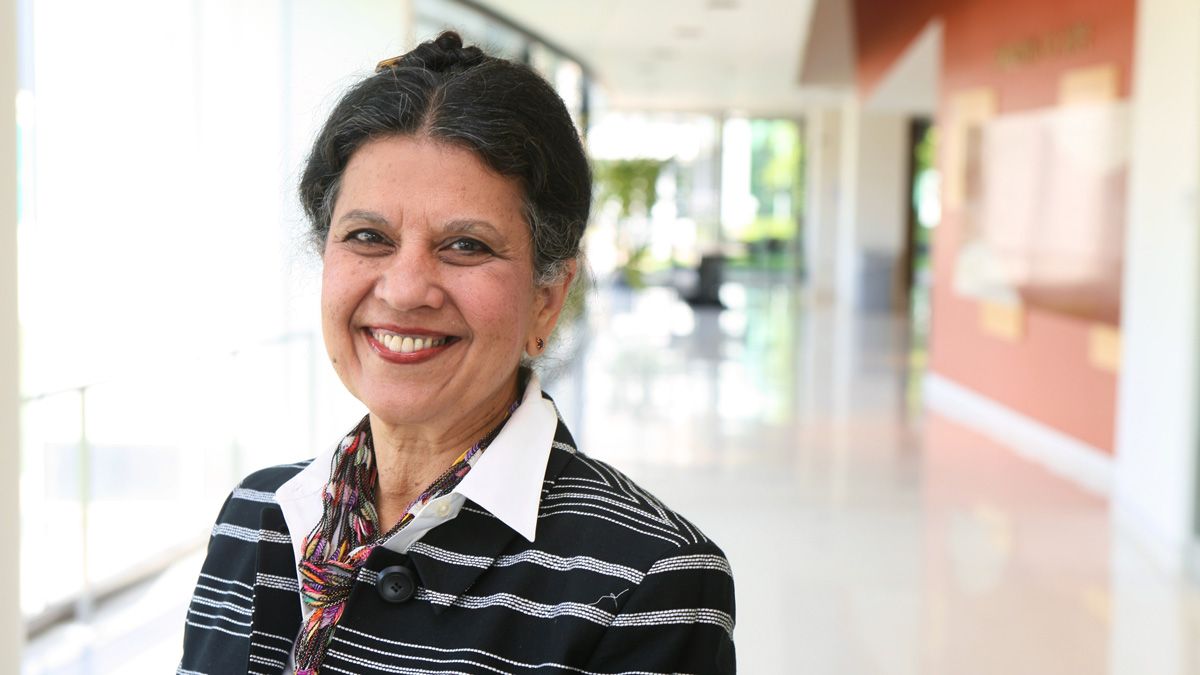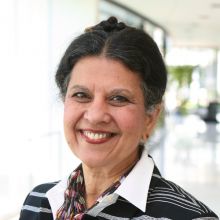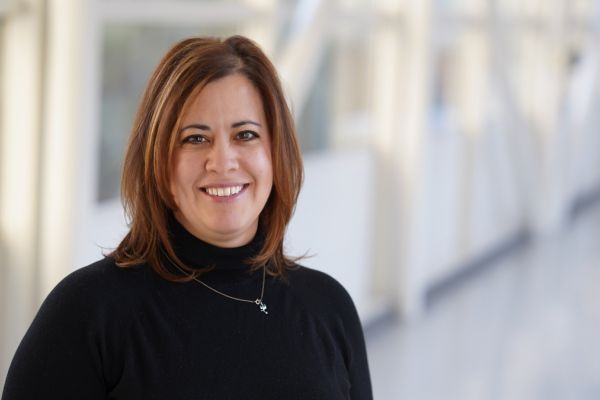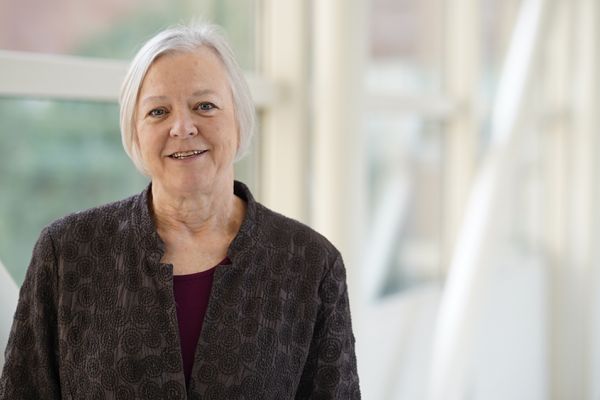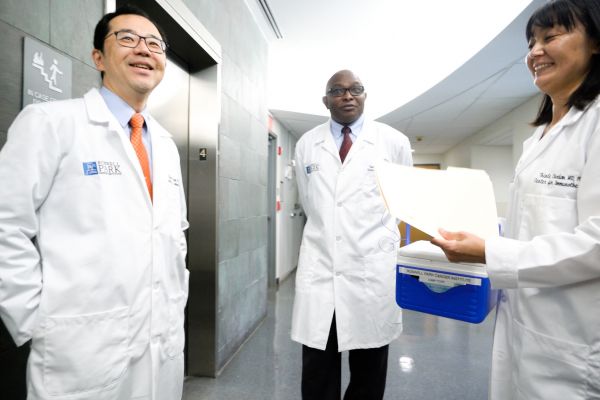From Potatoes to E-cigarettes, a Cancer Researcher Reflects on Her Life’s Work
What if you could protect large groups of people from Hepatitis B by having them eat potatoes that contained vaccines? This is the kind of innovative research that marks the work of Yasmin Thanavala, PhD, Professor of Oncology in Roswell Park’s Department of Immunology.
“Something as simple as eating a potato that carries a protein antigen from the surface of a virus could serve as a vaccine delivery system and generate an immune response,” explains Dr. Thanavala. "Such an approach would be especially valuable when availability of sterile needles and trained personnel to inject a vaccine could be a problem.”
Development of edible vaccines is just one of the many remarkable scientific areas of work of Dr. Thanavala, who earned her doctoral degree in immunology from the University of London.
“It’s really amazing what triggers someone and how happenchance can change your life,” says Dr. Thanavala. “I was living in Bombay, India, (now Mumbai) and attended a seminar on organ transplantation where I became absolutely enthralled by the idea that the immune system distinguishes self- from non-self antigens (foreign threats). This fascinated me to such an extent that I did my master’s degree on how estrogens influence the immune response at the National Institute for Research in Reproductive Health in Mumbai. That led to another turning point when I was asked to present my work at an international conference, and met a scientist who would change my life.”
It’s not just research for the sake of research. It’s the potential to provide simple and effective methods to protect against disease and cancer. That’s what has always been very important to me.Yasmin Thanavala, PhD
Dr. Thanavala recalls being approached after her presentation by an older woman. “She looked like the quintessential grandmother who walked up to me and said, ‘My dear, you must come and work with us in London.’ I thought she was a dotty old woman and when she wrote my contact information in an old notebook held together with rubber bands, I never thought for a moment that I’d ever hear from her again.”
But hear she did. The “dotty old grandmother” was Deborah Doniach, a pioneering clinical immunologist, endocrinologist and professor at the Royal Free Hospital Medical School in London, England. That chance meeting resulted in Dr. Thanavala completing her PhD in Immunology at the University of London under the mentorship of Ivan Roitt, a renowned immunologist and Honorary Fellow of the Royal College of Physicians, whose work with Doniach at the Department of Immunology at the University College London led to the discovery of the cause of Hashimoto’s thyroiditis. “From that moment on, vaccines became my lifelong passion and the focus of my own lab.”
The Path to Roswell Park
While working on her postdoctoral studies in London, another chance encounter at a conference in Houston led her to meet the former Chair of Roswell Park’s Department of Immunology, Dr. Heinz Kohler. “I was scheduled to fly right back to London, but Dr. Kohler insisted I travel to Buffalo, give a seminar and meet his colleagues, and immediately after that, I was offered a position in their Immunology Department.”
New opportunities came with new challenges. “I was moving across the ocean, leaving my research in a lab I loved, and trying to maintain a transatlantic romantic relationship,” she recalls.
Ultimately, Dr. Thanavala feels blessed by her good fortune. “My personality and career were shaped by my tenure in London, in a very high-powered environment where I always felt I had to work extra hard to succeed as a foreigner and as a woman. But that tenure in London also made me strong and opened many doors. I come from a family that places enormous value on education, so they fully supported my decisions and were enormously proud of my achievements. My husband generously left his faculty position in London to move here so that we could be together. I have had amazing opportunities and always went for them with gusto!”
With nine U.S. and international patents under her name, as well as numerous awards and professional achievements, Dr. Thanavala continues to search for connections between immunology and cancer survival. “In patients with advanced hepatocellular carcinoma (a type of liver cancer) I have been studying how treatment with sorafenib (an FDA-approved drug) can improve dysfunction in immune cells and how in a subset of patients this translates to improvement in overall survival or progression-free survival of cancer.”
Much of Dr. Thanavala’s current focus is studying the impact of smoking, vaping and even second-hand smoke exposure on lung disease. “This work has real consequences,” she says.
Never miss another Cancer Talk blog!
Sign up to receive our monthly Cancer Talk e-newsletter.
Sign up!One research project is looking at lung inflammation in patients with chronic obstructive pulmonary disease (COPD) caused by second-hand smoke and smoking cigarettes. Another is investigating the underlying cause of recent illnesses and deaths caused by vaping. In addition, a recently awarded major grant from the National Institutes of Health is providing her the opportunity to study the potential impact of a newer generation of nicotine devices called IQOS (I Quit Ordinary Smoking) approved for marketing by the FDA in May 2019.
Thirty-five years after joining Roswell Park, Dr. Thanavala is still excited every day by the possibilities ahead. “It’s not just research for the sake of research. It’s the potential to provide simple and effective methods to protect against disease and cancer. That’s what has always been very important to me.”
